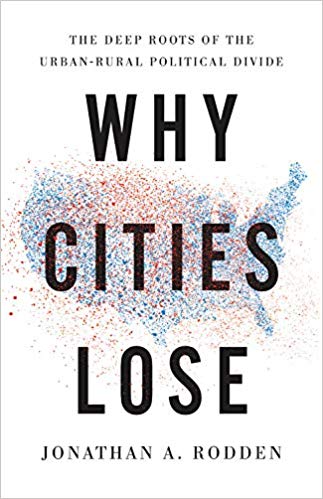2018 School Spending Survey Report
Why Cities Lose: The Deep Roots of the Urban-Rural Political Divide
COPY ISBN
 Rodden (political science, Stanford Univ.; Hamilton’s Paradox) looks beyond gerrymandering and voter suppression to offer a nuanced understanding of the Democratic Party’s inability to maintain majority representation despite consistently winning popular votes. At the heart of this issue, argues the author, is the contemporary U.S. urban-rural divide, which connects with the larger history of political geography beginning during the Second Industrial Revolution. By comparing countries with small winner-take-all districting vs. large proportional representation zones, Rodden’s well-researched narrative offers critical insights into why the U.S. government has become a rigid two-party system and how the geographical concentration of Democrats is undermining their ability to win elections. Many will find this helpful in explaining how the Republican and Democratic parties have grown so partisan, and may also serve to illuminate potential reforms that could alleviate urban-rural polarization.
Rodden (political science, Stanford Univ.; Hamilton’s Paradox) looks beyond gerrymandering and voter suppression to offer a nuanced understanding of the Democratic Party’s inability to maintain majority representation despite consistently winning popular votes. At the heart of this issue, argues the author, is the contemporary U.S. urban-rural divide, which connects with the larger history of political geography beginning during the Second Industrial Revolution. By comparing countries with small winner-take-all districting vs. large proportional representation zones, Rodden’s well-researched narrative offers critical insights into why the U.S. government has become a rigid two-party system and how the geographical concentration of Democrats is undermining their ability to win elections. Many will find this helpful in explaining how the Republican and Democratic parties have grown so partisan, and may also serve to illuminate potential reforms that could alleviate urban-rural polarization.
VERDICT A timely and critical work that explains the ramifications of operating a winner-take-all election approach in U.S. state and federal districting.
RELATED
ALREADY A SUBSCRIBER? LOG IN
We are currently offering this content for free. Sign up now to activate your personal profile, where you can save articles for future viewing




Comment Policy:
Comment should not be empty !!!